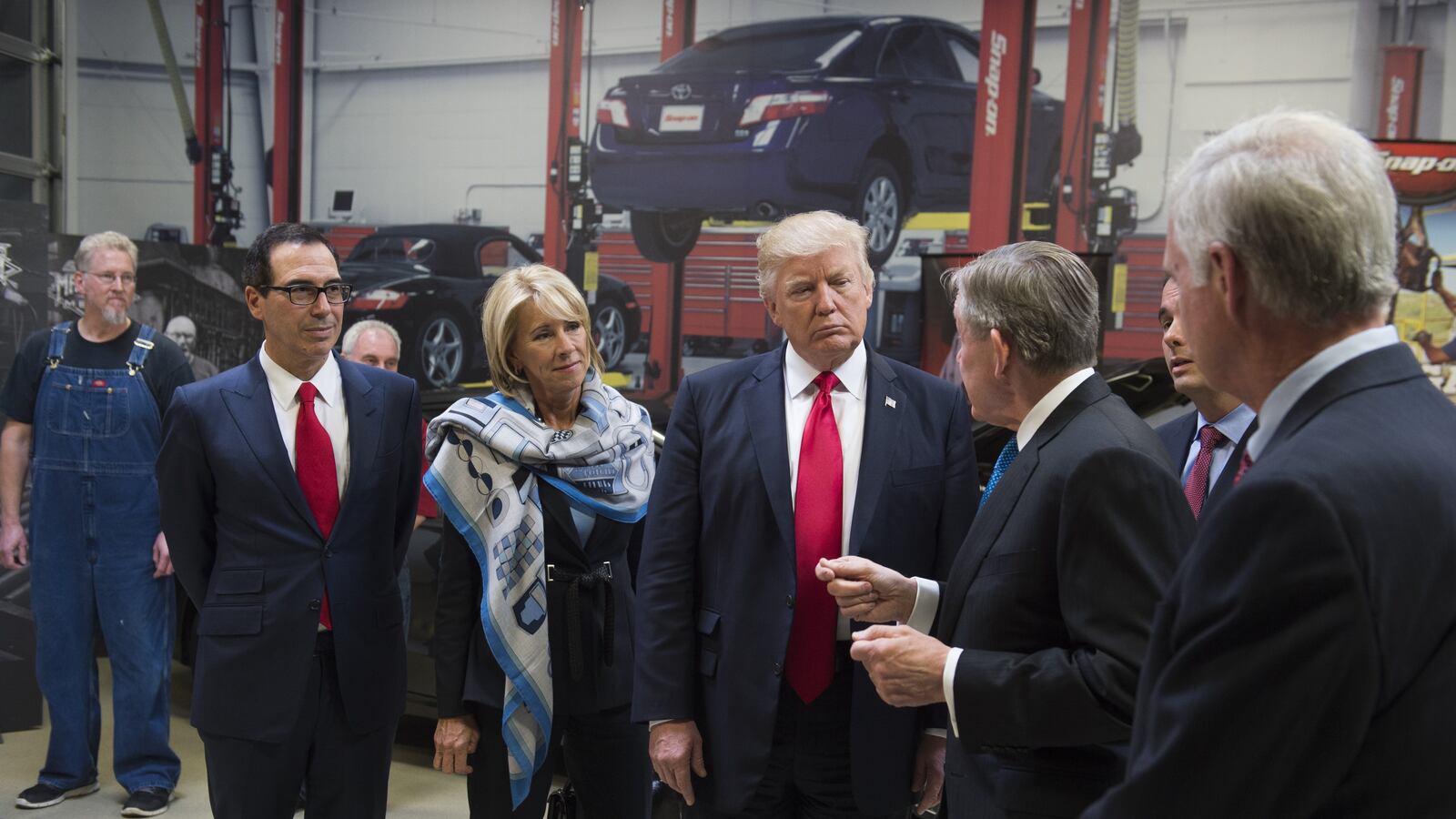Two statements highly critical of the Trump’s administration education policies hit reporters’ inboxes in quick succession Thursday evening.
That’s hardly unusual, but the sources were: Two groups that promote school choice and private school vouchers, EdChoice and the American Federation for Children — the same AFC that Trump’s Secretary of Education Betsy DeVos used to chair.
What was all the fuss about? A proposed tax rule, issued Thursday by the Treasury department, that threatens to undermine school choice tax credit programs. Critics call those programs “backdoor vouchers,” and they operate in some states where traditional vouchers, which allow students to attend private school using public money, aren’t legal.
Read more about the rise of tax credit programs here.
“As usual, the government has taken a sledgehammer to a nail, overreaching in a way that will hurt children in need who have benefited from scholarships to attend schools where they can learn,” said Leslie Hiner of EdChoice. (EdChoice is a supporter of Chalkbeat.)
A spokesperson for Betsy DeVos did not respond to a request for comment.
This all started with the new tax law passed late last year. The law included a $10,000 limit on the state and local taxes someone could deduct from their federal tax bill — a provision that would disproportionately hit people living in blue states, which generally have higher taxes.
Politicians in some of those states devised a workaround to keep residents’ tax bills lower: Instead of paying state and local taxes, residents could donate to a government “charity” fund, since charitable donations aren’t subject to the $10,000 cap. Connecticut, New York, and New Jersey have adopted this approach to varying degrees, and other states have considered it.
If that strategy sounds familiar, it’s because it’s similar to how tax credit scholarship programs work in states like Arizona.
Residents donate to nonprofit organizations that use the money to issue scholarships, or vouchers, to private schools. In exchange, the donors get generous tax credits, often reducing how much they owe in taxes by as much as, or more than, they donated.
The Trump administration was not happy with the idea that some states would circumvent its new rule. So the Internal Revenue Service issued a rule Thursday limiting these state and local tax workarounds: donations will no longer be fully deductible if the donor gets a tax credit in return.
That has the school choice groups worried.
“This will reduce charitable contributions to scholarship granting organizations, reduce the number of scholarships available, and potentially force thousands of students into the low performing schools they were fortunate to escape,” AFC president John Schilling said in a statement.
A spokesperson for AFC said the rules would affect scholarship programs in at least 13 states, though the IRS insists the impact won’t be widely felt.
“We appreciate the value of state tax credit programs, particularly school choice initiatives, and we believe the proposed rule will have no impact on federal tax benefits for donations to school choice programs for about 99 percent of taxpayers compared to prior law,” Treasury Secretary Steve Mnuchin said in a statement.
Some experts told Politico it wasn’t clear whether the new rule would apply to the tax credit voucher programs; the change may also be subject to legal challenge. But school choice groups say the uncertainty could dampen interest in donating to tax credit programs (although the state incentives would would be unaffected).
Others have celebrated the rule change, which still has to go through public comment.
Carl Davis of the Institute on Taxation and Economic Policy, a progressive think tank, points out that scholarship donors in some states have been able to essentially turn a profit under previous rules, getting a tax benefit larger than the amount they donated.
“The IRS deserves praise for resisting efforts to carve out exceptions for donors to private schools that would allow them to continue profiting from their role in the movement of public dollars into private schools,” he wrote in The Hill.


